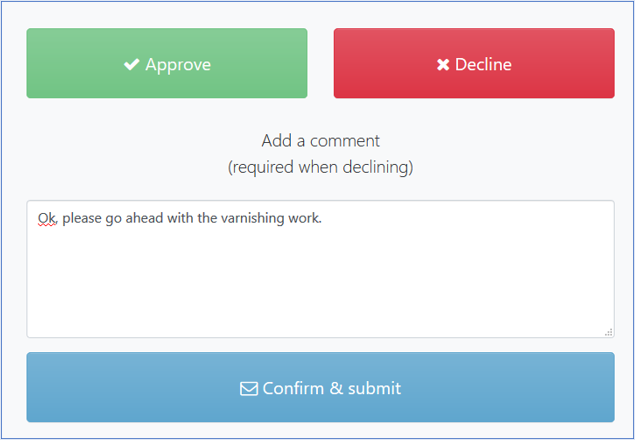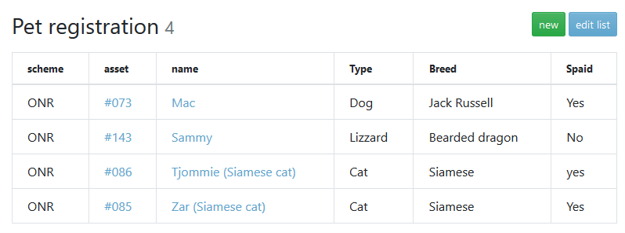Becoming a trustee in your complex can be extremely rewarding. Not only do you get to help your fellow body corporate members by taking some of the load off their shoulders, but you also get to have a say in the comings and goings of your complex. It is, after all, where you live. So knowing what is going on and the decisions being made are of huge benefit to you.
However, your experience of being a trustee all comes down to the relationships that you have with your fellow trustees, body corporate members, and managing agent. Unfortunately, as human interactions go, these types of relationships can easily turn messy.
We’re here to help you find ways to create a healthier, more community-driven relationship between your fellow trustees and managing agent. Getting this right is the difference between a great trustee experience versus an anxiety-riddled bad time.
Basically, it all comes down to following a well-structured communication process using the Unity platform.
Disagreements among trustees are normal
It’s normal for disagreements to arise between trustees in a body corporate. Trustees are made up of a group of people who are personally invested in the sectional title scheme. In many cases, this is their home. Their safe space.
It’s completely normal and highly justifiable that there will be a certain emotional element to all trustee relationships. But, this doesn’t mean that all trustee relationships need to turn sour.
Disagreements among trustees is often a result of two things:
- Miscommunication.
- Poor record-keeping.
Using a system like Unity can be your saving grace in creating a smooth decision-making process and a way to keep a record of every decision made.
Improve your communication and your processes for record-keeping, and you’ll quickly become the strongest group of trustees to serve your sectional title scheme.
Case Study: How to use Unity to resolve disputes among body corporate trustees
We recently sat down with one of our clients, Sarah (named changed for anonymity), who was the acting chairlady at a complex in Johannesburg North when things got very messy among the trustees. Unfortunately, she was falsely accused of not acting in the complex’s best interests, with many other defaming accusations thrown at her.
At the time, their managing agent was making use of the Unity platform. This meant that absolutely every decision had been documented through the system. Every quotation, discussion, and approval was recorded.
This meant that Sarah could pull these records and compile a detailed report with clear evidence as to what had been going on the past few years. Some of the data that she was able to use includes:
- All approvals that had been made among the trustees.
- The dates and times of decisions made, including response times from each of the trustees.
- All queries and concerns that had been raised.
This all provided enough evidence to prove that Sarah had been falsely accused and that the trustee who had raised all the concerns had, in fact, not been involved in any of the decision making.
After presenting this report to the body corporate, all truths were revealed, and trust was regained.
How do trustees use Unity?
In most cases, the Unity platform sits with a managing agent who uses the platform for various automation processes. One of these processes is organising the communication stream between trustees and managing agents.
As trustees, you can use Unity to create/follow individual tickets for each project on the go. This ticket then keeps all relevant information together, including:
- Description of the issue (e.g. a plumbing issue in unit 67).
- All quotations received.
- Any concerns raised in the comments.
- Approvals from all trustee members.
Each trustee can then go to the ticket and view all relevant information in one place and easily compare quotes to vote a ‘yes’ or ‘no’. This is much easier than having information and quotes scattered between 10 different email threads!

Sarah found that this helps with trustees being able to make better decisions:
“Although you’re working as a team, it’s important for each trustee to apply their own opinion on things. You’re on your own when you’re commenting/voting, so you’re able to clearly and independently make a decision. You aren’t influenced by others.”
She also found that when a trustee voted ‘no’ on something, this encouraged more discussion among the trustees and therefore brought up more potential issues.
While face-to-face meetings are great for discussions, particularly when big-spend decisions need to be made, all final decisions need to be digitally recorded. Not only does it make the decision-making process more fair and unbiased, but it’s essential for record-keeping.
Put it in writing, ALWAYS
When we emphasize the importance of record-keeping, we aren’t only talking about the benefits of having evidence to pull when accusations start getting thrown around.
It also helps for pulling up historical records for recurring issues. For example, when unit 67 has its third plumbing issue for the year. If each issue is properly documented, you can easily see what the problem was last time and how it was fixed.
Record-keeping helps with handing over information to the next responsible party
Each year, new trustees are voted in. Detailed record-keeping means that they will have access to all previous knowledge and decision-making. Say, for example, they need to look at painting the complex. They can pull up tickets from the last time that the complex was painted and see who the best contractor was and any issues that may arise again.
This also applies to managing agencies that often have a high turnover of employees. If your complex is assigned a new portfolio manager, you’ll know that they have all the background information needed to continue managing your sectional title scheme.
The same applies if you, as a body corporate, change managing agencies. This is exactly what happened with Sarah and the trustees that she works with. After all of the issues that they had, the majority had voted to change managing agents. Sarah then raised an issue that she wasn’t happy with the new managing agents’ processes as no records were being kept.
They’ve since voted and will be continuing to use Unity with their new property agent. They’ve been able to pull all historical records to hand over to their new portfolio manager, equipping them with enough background information and knowledge to make great decisions going forward.

If a discussion isn’t recorded digitally, did it even happen?
We’re living in an age of digital information. And while you don’t need to record absolutely every discussion necessarily, you do need to record the important ones. The ones that lead up to big decisions – particularly big-spend decisions.
If your managing agent isn’t using an online managing software, you seriously need to consider getting set up on one. Get in touch with us at Unity for a demo and free trial.
Trust us; you (and your inbox) will thank us later!

